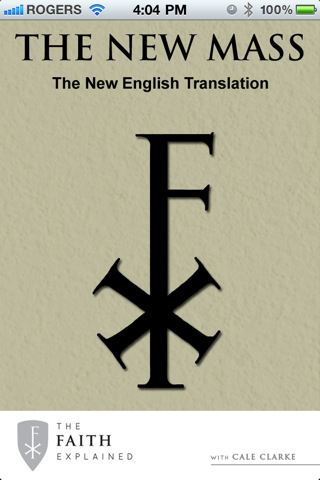Posts
 Today’s Gospel is the famous account of the Annunciation from Luke 1:26-38. It includes some indirect proof for two major Marian dogmas of the Church – the Immaculate Conception (which was recently celebrated on Dec. 8), and the perpetual virginity of Our Lady. It also gives us part of the biblical roots of the “Hail Mary”.
Today’s Gospel is the famous account of the Annunciation from Luke 1:26-38. It includes some indirect proof for two major Marian dogmas of the Church – the Immaculate Conception (which was recently celebrated on Dec. 8), and the perpetual virginity of Our Lady. It also gives us part of the biblical roots of the “Hail Mary”.
When the archangel Gabriel greets Mary, it marks the only recorded incident in scripture that an angel greets someone by their title, not their name. “Hail, Full of Grace, the Lord is with you” (Lk 1:28). This, of course, is the first line of the “Hail Mary”, with the second line, “Blessed are you among women, and blessed is the fruit of your womb”, from Luke 1:42. So much for the ridiculous argument that the prayer is “unbiblical”.
But what of those dogmas? Speaking of the phrase, “Full of Grace”, in the original Greek of Luke’s Gospel, it is an interesting term: “kecharitomene”. It means, literally, “one who has been made full of God’s grace” (biblical translations that render this term “highly favored one”, or something to that effect, don’t cut it) . It’s a past perfect, meaning that, at some point in the past, Mary was made perfectly full of God’s grace. This condition extends out into the future, into eternity. This is exactly what the Immaculate Conception is all about – that, from the first moment of her existence, Mary was preserved free from all stain of original sin. If one is perfectly full of the grace of God, there is no room for sin.
With respect to the perpetual virginity, Gabriel explains to Mary that she will bear the Messiah, and at this point he has said nothing about Jesus being conceived by the Holy Spirit. Yet, Mary says, “How can this be, since I am a virgin?” (Lk 1:34). A very strange question for a young woman to ask, who, as we have already been told, was engaged to be married. Unless, that is, she had already intended to remain a virgin, consecrating herself wholly to God.
 I have written elsewhere in these pages about Tim Tebow, and let me say on record that I’m a fan. To say that Tebow is the most polarizing athlete of our time is no understatement, and much of this is due to the way he articulates his faith. Robert Mixa, over at the fantastic Word on Fire blog, makes some very thought-provoking comparisons between the way Tebow speaks about his beliefs, and the new English Mass translation – both of which are making some people very, very uncomfortable. You can check it out here. Be sure to leave your thoughts in the combox below. Big HT to Jasmin Lemieux-Lefebvre (@jasminll) for alerting me to this story.
I have written elsewhere in these pages about Tim Tebow, and let me say on record that I’m a fan. To say that Tebow is the most polarizing athlete of our time is no understatement, and much of this is due to the way he articulates his faith. Robert Mixa, over at the fantastic Word on Fire blog, makes some very thought-provoking comparisons between the way Tebow speaks about his beliefs, and the new English Mass translation – both of which are making some people very, very uncomfortable. You can check it out here. Be sure to leave your thoughts in the combox below. Big HT to Jasmin Lemieux-Lefebvre (@jasminll) for alerting me to this story.
 I recently had a radio conversation with the always entertaining Pedro from Salt and Light! Our chat shed some light on the creation of The New Mass app for Apple and Android, as well as our thoughts on the new English Mass translation itself. You can listen for yourself, or download the podcast here. Spread the word!
I recently had a radio conversation with the always entertaining Pedro from Salt and Light! Our chat shed some light on the creation of The New Mass app for Apple and Android, as well as our thoughts on the new English Mass translation itself. You can listen for yourself, or download the podcast here. Spread the word!
 Matt Warner over at Fallible Blogma mentions The New Mass app for iOS and Android in his collection of new Mass resources. Check out the article here. Oh, and make sure you watch those great LifeTeen videos on the new translation!
Matt Warner over at Fallible Blogma mentions The New Mass app for iOS and Android in his collection of new Mass resources. Check out the article here. Oh, and make sure you watch those great LifeTeen videos on the new translation!
 The Old Testament readings at daily Mass lately have been taken from the book of Daniel. This was a book that Jesus drew from in important ways to explain his identity. In today’s first reading, we witness Daniel’s incredible night visions:
The Old Testament readings at daily Mass lately have been taken from the book of Daniel. This was a book that Jesus drew from in important ways to explain his identity. In today’s first reading, we witness Daniel’s incredible night visions:
I saw in the night visions, and behold, with the clouds of heaven there came one like a son of man, and he came to the Ancient of Days and was presented before him. And to him was given dominion and glory and kingdom, that all peoples, nations, and languages should serve him; his dominion is an everlasting dominion, which shall not pass away, and his kingdom one that shall not be destroyed.
– Daniel 7:13-14
Many Christians are under the mistaken impression that the term “Son of God” refers to Jesus’ divine nature, while “Son of Man” (which is Jesus’ favorite self-designation in the Gospels) is a reference to his human nature. In reality, the opposite is the case. Now, don’t get me wrong – Jesus is God the Son, the unique, “only-begotten son” of the Father (cf. John 1:18, 3:16). But, in the Old Testament, all Israel was known as God’s “son” (see Hos 11:1), with individual Israelites known as the “sons of God” in an adoptive sense.
The passage from Daniel above speaks of an enigmatic “one like a son of man”, coming on the clouds of heaven, who approaches the “Ancient of Days” (God the Father) and receives an indestructible kingdom and the service of all people. This passage is quoted by Jesus when he is on trial before the high priest. At issue is his messiahship.
And the high priest stood up in the midst, and asked Jesus, “Have you no answer to make? What is it that these men testify against you?” But he was silent and made no answer. Again the high priest asked him, “Are you the Christ, the Son of the Blessed?” And Jesus said, “I am; and you will see the Son of Man seated at the right hand of Power, and coming with the clouds of heaven.” And the high priest tore his garments, and said, “Why do we still need witnesses? You have heard his blasphemy. What is your decision?” And they all condemned him as deserving death.
– Mark 14:60-64
The high priest certainly understood what Jesus meant by referring to himself as “Son of Man”. He is that figure who Daniel had envisioned so long ago – the everlasting King.
 Brad West from Catholic Tech Talk.com has put The New Mass app through its paces, and his full review is now online! You can check it out by clicking here. Brad has really captured the essence of why we created the app.
Brad West from Catholic Tech Talk.com has put The New Mass app through its paces, and his full review is now online! You can check it out by clicking here. Brad has really captured the essence of why we created the app.
As well, please don’t forget to click on the “Recommend” button at the top of the The New Mass page, to tell all your Facebook friends about it! We would also greatly appreciate it if anyone who has downloaded the app would give it a rating, via the App Store on your mobile device, or through iTunes on your computer. Thank you so much!
 I’m now booking more seminars for the U.S., Canada, and overseas explaining the new Mass translation. Or, you can choose one of the many other topics available. Simply use the “Contact” page here to send us a message and get the process started. Our calendar is filling up quickly, so book now to avoid disappointment. End of infomercial!
I’m now booking more seminars for the U.S., Canada, and overseas explaining the new Mass translation. Or, you can choose one of the many other topics available. Simply use the “Contact” page here to send us a message and get the process started. Our calendar is filling up quickly, so book now to avoid disappointment. End of infomercial!
 Pope John XXIII, before he was elected Pontiff, served as a diplomat. One evening, he was introduced at a function to a rather scantily clad woman. “Here”, the future Pope said to her, “Why not take a bite from this apple?” The lady looked at him quizzically. He responded, “If you eat it, perhaps, like Eve, your eyes will be opened and you will realize you are naked!”
Pope John XXIII, before he was elected Pontiff, served as a diplomat. One evening, he was introduced at a function to a rather scantily clad woman. “Here”, the future Pope said to her, “Why not take a bite from this apple?” The lady looked at him quizzically. He responded, “If you eat it, perhaps, like Eve, your eyes will be opened and you will realize you are naked!”
The Old Testament readings at Mass these days have been selected from Genesis. They deal with the origins of man and woman, nakedness and fig leaves, good and evil. There are several things we as Catholics need to understand about this book, and one of them is this:
The first three chapters of Genesis deals with the creation of the world from a poetic perspective.
Now, before anyone asks, I want to get one thing straight: the Bible contains real history. The Gospels, for example – biographies of the life of Jesus, who truly lived and died and rose again on planet earth. The Acts of the Apostles – the history of the early Church. There are, of course, many historical books of the Old Testament as well.
A key to biblical interpretation is this: understand the genre that you are reading. You don’t read poetry (Like the Song of Solomon) as you would a historical narrative. The problem with Genesis is that it is a hybrid of history and poetry (the first three chapters on Creation).
Catholics don’t run into the same sort of problems that some non-Catholic Christians do in dealing with creation from a scientific perspective (i.e. the young-earth theory, creation in six literal days, etc.). We see no conflict between faith and science. Some of the greatest scientists in the world were Catholics. A great number of craters on the moon, for example, are named for Jesuit scientist-priests who discovered them.
Science only describes how things work in God’s creation. But it can’t tell you the whys – the reason for our existence, and that of everything else. Genesis 1-3 does exactly that, using poetry. Genesis 1-3 is not a scientific document, or a documentary on how God created the universe and humanity. We know that it isn’t, for one simple reason (and there are more): the writer or writers of Genesis weren’t there, “in the beginning” to take notes!
But poetry can also communicate God’s truth, just as history can.
Christopher West, who has written so extensively on Pope John Paul II’s Theology of the Body, has a great way of explaining this: He says that there’s a big difference between what an optometrist (a scientist) tells you when looking in your eyes, and what your lover tells you when doing the same thing – unless, of course, you’re in love with your optometrist! But what both are seeing is true – just from different perspectives.
The writer of Genesis was a lover who sees the deep truths of why God made the world – and us. It was so that we could be in relationship with him.
 And so it begins….I really can’t believe it, but I’m a finalist in four categories in the About.com Catholicism Reader’s Choice Awards! It’s so easy to vote, and it only takes a moment. I’d be so grateful if you would vote for me in the following categories:
And so it begins….I really can’t believe it, but I’m a finalist in four categories in the About.com Catholicism Reader’s Choice Awards! It’s so easy to vote, and it only takes a moment. I’d be so grateful if you would vote for me in the following categories:
Best Catholic iPhone app: The New Mass
Best Catholic blog: The Faith Explained with Cale Clarke
Best Catholic to follow on Twitter: @CaleClarke
Best Catholic Facebook Page: The Faith Explained
You can click on any of the above hyperlinks to start voting, or go to this url:
http://catholicism.about.com/od/thechurchintheworld/ss/2011-About-Com-Catholicism-Readers-Choice-Awards-Finalists.htm
Have fun, and, as always, thank you, thank you, thank you for all your support. Without you these pages simply wouldn’t exist!


